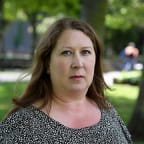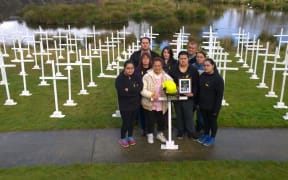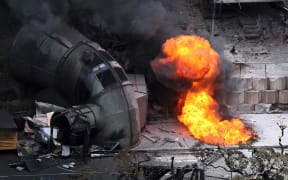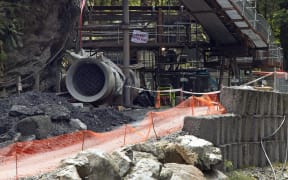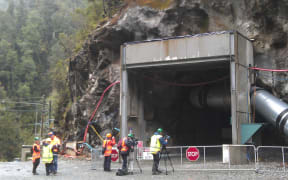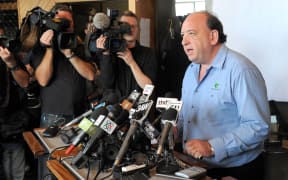There were tears, mixed with applause, at the emotional premiere of The Women of Pike River in Christchurch's Isaac Theatre yesterday evening.
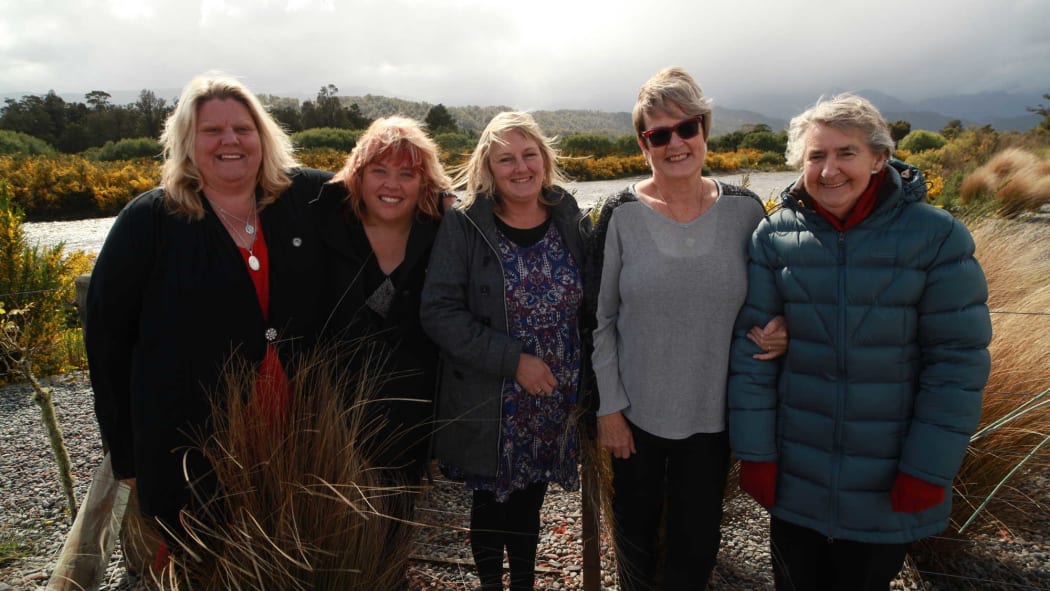
Five of the women featured in the film: Sonya Rockhouse, Kath Monk, Anna Osborne, Brenda Rackley and Nan Dixon Photo: Supplied
The documentary is barely an hour long but clocks a powerful punch in a short time, as it profiles six women directly affected by the Pike River mine disaster, when 29 men died in a series of explosions in November 2010.
It looks at the industrial tragedy and its aftermath, from the point of view of Nan Dixon, Kath Monk, Olivia Monk, Anna Osborne, Brenda Rackley and Sonya Rockhouse.
The documentary's director, former newspaper, radio and TV reporter, Mary Durham, told Radio New Zealand she was very excited by the New Zealand International Film Festival premiere, but was nervous for the women too.
She said while there were so many angles to the Pike River story and a lot have already been covered, "we've never learnt how it affected the families involved, and to me that was crying out to be told."
"We decided at Greenstone that the best way to tell those stories was through the women's voices, not the men's, because women react more emotionally - very differently than men.
"There have been so many horrendous things that continued to happen to the families after the explosion: we felt they needed exploring as well.''
One of the things she learnt while making the documentary was "how thoroughly normal and thoroughly decent these people are''.
"It illustrates to me that, in this country, something horrendous can happen to all of us.
"This should never have happened and that's one of the shocking things about it - that in a country like New Zealand, where we're supposedly first world, we had third world standards.''
She said she also never fully grasped how many times, as the women put it, they had been kicked in the guts.
"What's striking about the documentary is the level of frustrations that they feel. Throughout, they've been powerless over so many factors: the mine, the justice system, the government.
"It's a hard watch, I'm not going to shirk away from that - it is upsetting but we have to be informed.''
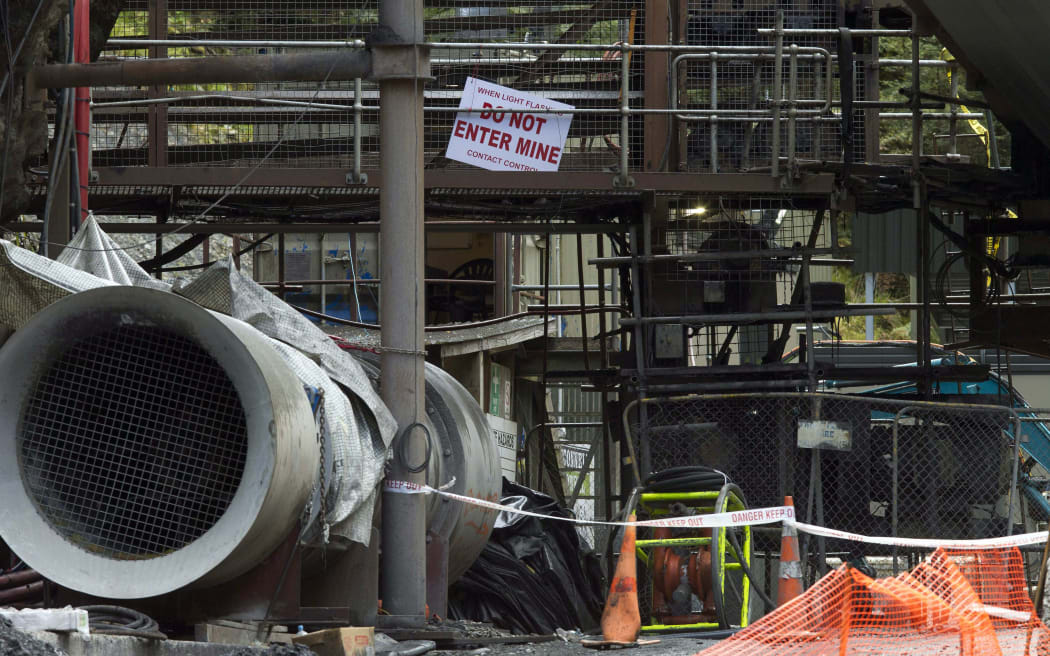
The entrance to the Pike River Mine, pictured in November 2010. Photo: AFP
Sonya Rockhouse, who lost her son Ben at Pike River, has already seen the documentary eight times, with private screenings held for the women, other Pike River families and the wider community on the West Coast in the past few months, but each time she gets something new out of watching it.
"It's been a very ardous journey for all of us and I don't think most of the population know what it's like.
"It's not just a matter of losing somebody - it's all the other stuff that goes with it and it's been very difficult, and this documentary is just a small snippet of what we've had to deal with.''
She had no hesitations when asked to take part though.
"I wanted to be able to say the things that I haven't been able to say, which I think is very important.
"We've said a lot and it gets edited - it was a small part to the way to healing.
"They've done an amazing job, they were very tender with us. It was an incredible experience about a sad situation - there were a lot of tears.''
She said she would like people to have a little more of an understanding about what the families are going through.
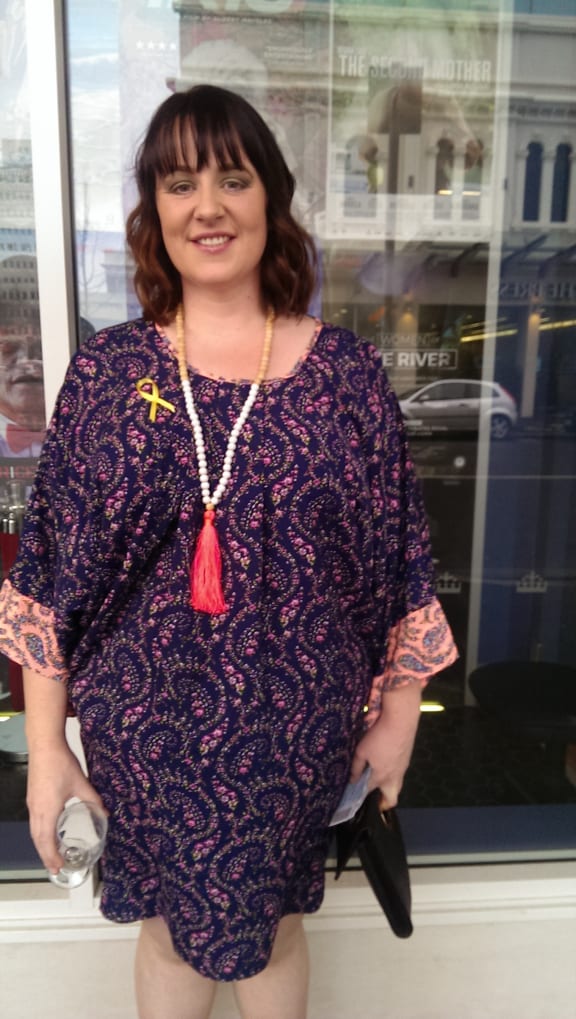
Olivia Monk was encouraged to take part in the documentary by her mother. Photo: Supplied
"It will be nice if even a handful of people walk away and go, 'Wow, now we understand a bit more of what they're going through,' - that will be great.''
Olivia Monk, who lost her younger brother Michael in the explosion, has a simple reason for being involved: "Mum made me.''
"Mum's always been very worried, because Dad [Bernie Monk] is such a public figure in this whole situation, and a lot of times people would send cards and letters to 'Cath, Bernie, Alan [her brother] and family'.
"The joke has been my name was 'and family', so Mum thought it was important that I was involved in this.''
She described first seeing the documentary as 'a bit weird'.
"Back when it happened, I sort of thought: 'This is what you watch on TV, because it's happened to other people, but it's happened to me, and now I'm watching me on TV.
"It was a bizarre feeling.''
She said she was fairly happy with the final cut, but there were things that she would have liked to have seen in the documentary, though she accepted that these were her personal views that may not shared by everyone.
Ms Monk said she accepted there may be some fatigue by the public in the coverage of Pike River but said it was a different situation when you were living it every day.
"It's not fatigue, it's my life.
"It's there from the second I wake up to the second I go to sleep, and it's in my sleep as well.''
She believes people need to watch the documentary, which is expected to air on television later this year, because it is part of New Zealand's history.
She said the documentary gives a different perspective beyond the 29 men killed in a coal mine, "they were our loved ones, and how we're feeling, and what these men were to us."
"Things have to change: no family should have to go through what we've been through.
"There have been 291 deaths since Pike River in New Zealand, wihin the workplace, and that is unacceptable.
"We're trying our best to change things, and the rest of New Zealand has to get in behind it, or it could be their families next.''
